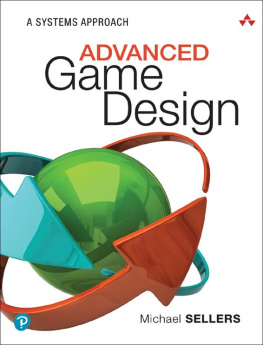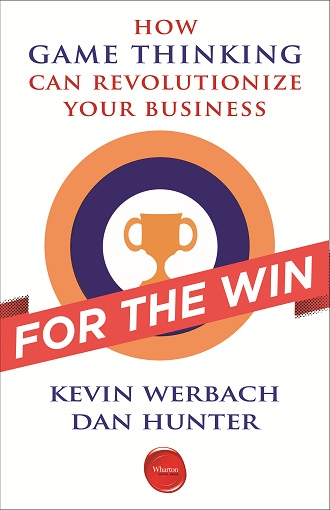
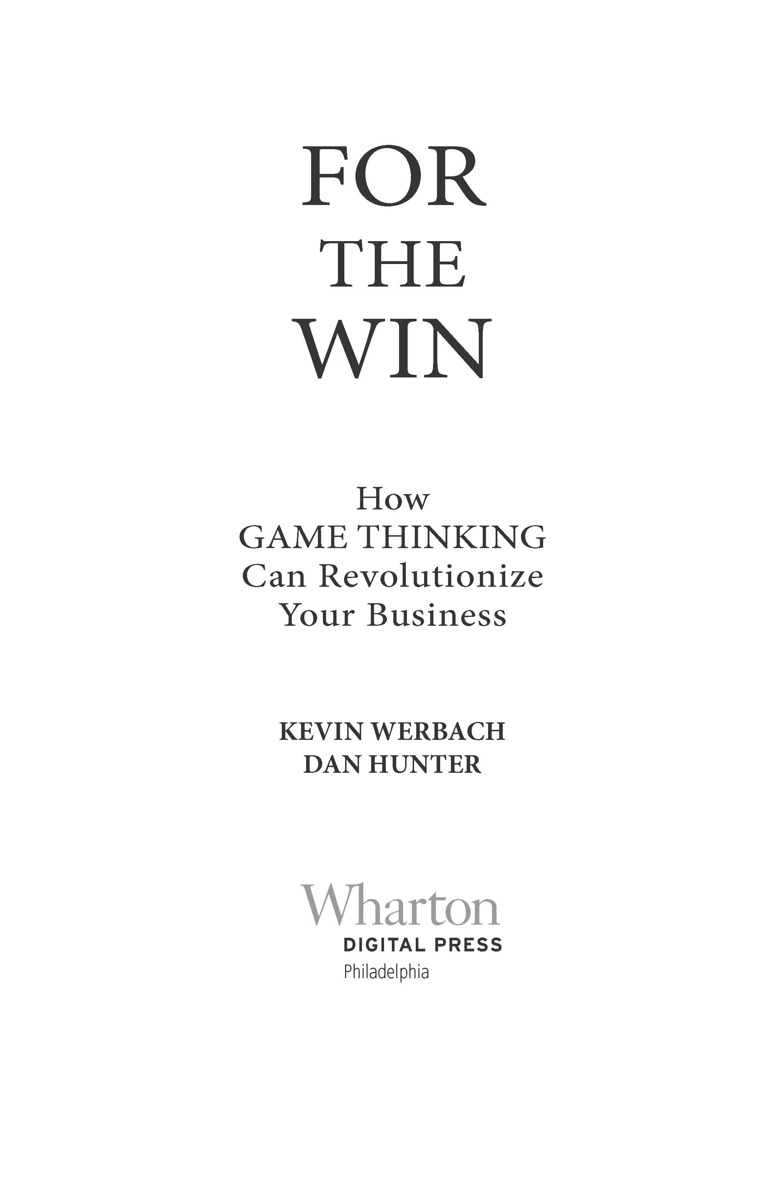
For the Win
How Game Thinking Can Revolutionize Your Business
Kevin Werbach
Dan Hunter
Wharton Digital Press
Philadelphia
For Nate and ElenaDH
For Eli and EstherKW
Contents
Introduction: Why Cant Business Be Fun?
Level 1: Getting into the Game: An Introduction to Gamification
Level 2: Game Thinking: Learning to Think Like a Game Designer
Level 3: Why Games Work: The Rules of Motivation
Level 4: The Gamification Toolkit: Game Elements
Level 5: Game Changer: Six Steps to Gamification
Level 6: Epic Fails: And How to Avoid Them
Endgame: In Conclusion
Acknowledgments
Glossary
Additional Resources
About the Authors
Introduction: Why Cant Business Be Fun?
An investment banker walks into his supervisors office to announce hes jumping ship to a competitor. Sure, the firm paid him a hefty salary for the past five years, but one bank is the same as another, right?
A call-center worker reads the script on her computer screen in a measured tone. Her mind wanders as she struggles to get the customer off the phone. She tries to decide if shes too far behind on her daily call quota to take that next five-minute authorized bathroom break.
A mother wheels her shopping cart through the supermarket aisles, as her toddler becomes unruly in the child seat. She grabs products from the shelves, usually picking the cheapest one without much thought.
Disengaged, demotivated, disempowered, and disconnected. Isnt that how employees and customers always areand always will be?
Now imagine a different set of scenarios. The banker basks in the status boost when his deal team tops the firms internal leaderboard. The call-center worker feels rewardedmentally and by her employerwhen she helps a customer out of a jam. And the harried mother feels a jolt of pure joy when she realizes that next box of cereal means she has earned enough points to reach the next level on an online community site.
By at least some measures, the people in the first vignettes are doing their jobs effectively. Perhaps we want our leaders to be ruthless, our workers to be interchangeably efficient, and our consumers to be buying unthinkingly. But an exclusive focus on short-term factors will produce short-term benefits at best, while risking much larger long-term costs. These individuals are not engaged: They are phoning it in. Its hard to imagine any of the companies they interact with producing the next great innovation, viral hit product, or visionary CEO. And no one seems to be having much fun. But whats fun got to do with business, anyway?
A lot. For thousands of years, weve created things called games that tap the tremendous psychic power of fun. A well-designed game is a guided missile to the motivational heart of the human psyche. Applying the lessons that games can teach could revolutionize your business. The premise of this book is that fun is an extraordinarily valuable tool to address serious business pursuits like marketing, productivity enhancement, innovation, customer engagement, human resources, and sustainability. We are not talking about fun in the sense of fleeting enjoyment but the deep fun that comes from extended interaction with well-designed games.
Think about a time when you were engrossed in a game. For some of you it might have been golf; for others, chess or Scrabble; for others, FarmVille or World of Warcraft. Wouldnt you like to feel that same sense of accomplishment and flow in your work or to feel engaged and rewarded by your consumer interactions with companies? Organizations whose employees, communities, and customers are deeply engaged will outperform those that cannot engender authentic motivation. This is especially true in a world where competition is global and technology has radically lowered barriers to entry. Engagement is your competitive advantage. Game-design techniques provide your means to achieve it.
Games have been around as long as human civilization. Even videogames have a forty-year history and comprise a massive global industry that generates $70 billion per year. Hundreds of millions of people in every corner of the globe spend hundreds of billions of minutes every month playing console, PC, online, and mobile games. Games are popular in every demographic, gender, and age group, but they are especially pervasive among the generation now moving into the workforce.
Our starting question is this: What if you could reverse-engineer what makes games effective and graft it into a business environment? Thats the premise of an emerging business practice called gamification. Our goal is to show you exactly how gamification can be used as a powerful asset for your organization.
One point to make clear at the outset: This isnt a book about videogames. Its not about the games industry, the gamer generation, the societal impact (good or bad) of game-playing, or how much the latest release of Madden Football cost to produce. Its not about 3D virtual worlds, advergames, or edutainment. Its not even about the internet or digital business. Sure, well talk about such things, but only as context. And because this is a business book, we havent even mentioned the burning academic debates in games scholarship, such as the ludologists vs. the narratologists. (Dont ask.) No, this is a book about how you can use gamification to improve your business practices.
Gamification does not mean turning all business into a game, any more than innovation turns it into an R&D lab or Six Sigma turns it into a factory production line. Gamification is a powerful toolkit to apply to your existing business challenges, whatever the nature of your firm. Many of the best examples of game mechanics in business dont even look like games to those involved. The essence of games isnt entertainment... its a fusion of human nature and skillful design. The hundreds of millions of people who flock to games on their computers, consoles, mobile phones, tablets, and social networks such as Facebook do so because those games were rigorously and skillfully designed, based on decades of real-world experience and research into human psychology.
Successful gamification involves two kinds of skills. It requires an understanding of game design, and it requires an understanding of business techniques. Few organizations are good at both. Knowing how to conduct a market segmentation or a minimum viable product analysis wont show you how to create enduringly engaging experiences. Thats why most business managers find gamification so new and challenging. The reverse, however, is equally true. Expertise in programming, game-level design, art direction, or playtesting wont help you calculate the lifetime value of a customer, manage a team, or choose the right business strategy. In our research with companies and in teaching the worlds first course on the business practice of gamification at Wharton, we see both the confusions and the insights that emerge when business practices and game design meet.
Underlying our effort is the recognition that traditional incentive structures to motivate customers and employees often fall short. The carrot and the stick dont cut it anymore; and money, status, and the threat of punishment only work up to a point. In a world of near-infinite choices, the old techniques are rapidly becoming less effective. Economists have been forced to acknowledge that people sometimes act in predictably irrational ways that frustrate basic tenets of management and marketing. How can firms use this knowledge to positive effect?
Next page
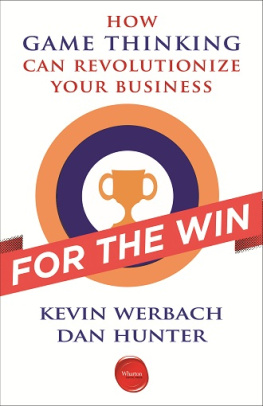
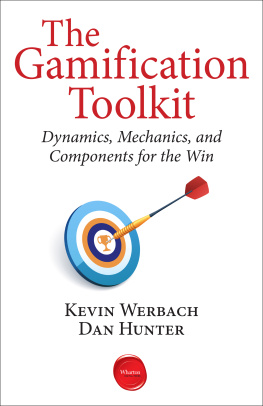


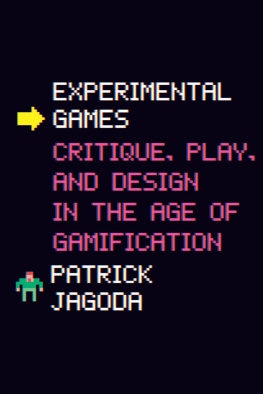
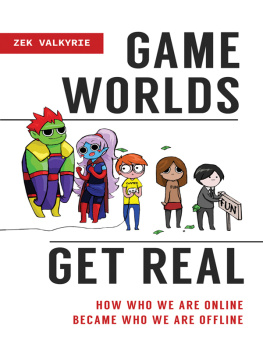
![Jesse Schell [Jesse Schell] - The Art of Game Design, 2nd Edition](/uploads/posts/book/119435/thumbs/jesse-schell-jesse-schell-the-art-of-game.jpg)
